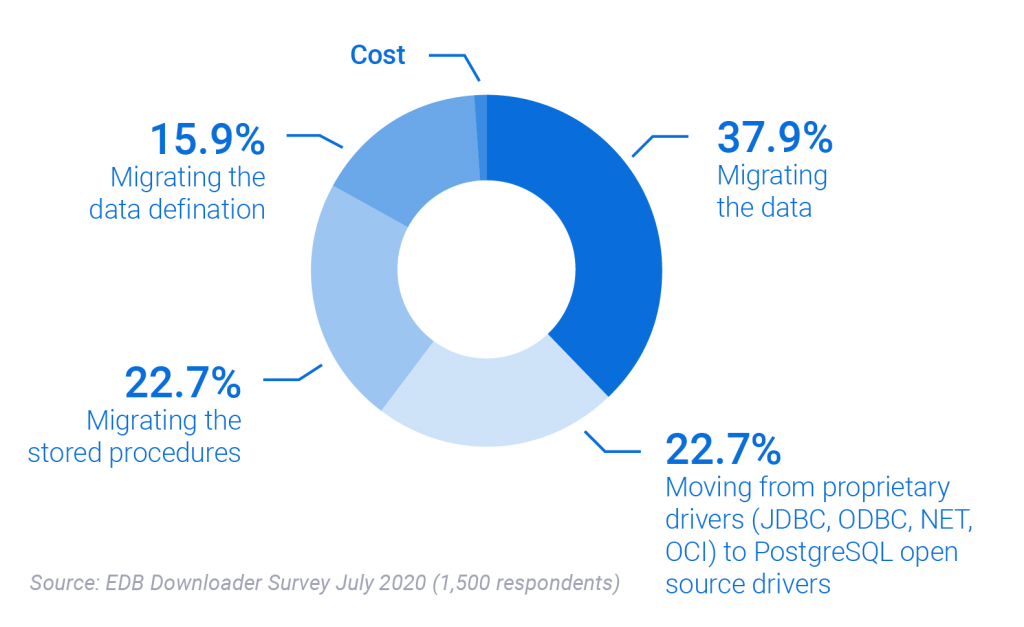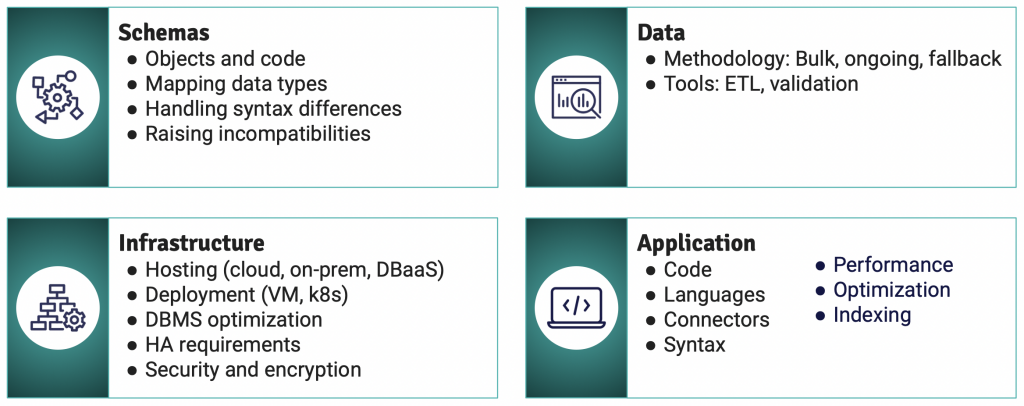EDB was thrilled to host our annual Postgres Vision event this June. Over the course of two days, we brought together some of the biggest names in Postgres—both from EDB and the community at large—to discuss what this remarkable open source database project has accomplished over the last year, where it’s headed and how all those in attendance could make the most of its potential.
One of the most prominent topics this year was that of Oracle-to-Postgres migration: why it’s so popular among innovating enterprises, what considerations businesses should keep in mind and how EDB can help.
In the first of two sessions discussing this trend entitled “Oracle Migration Made Easy,” Matthew Lewandowski, Senior Product Manager of Database Migration Capabilities at EDB dove into the fundamental reasons why organizations are leaving Oracle and how to achieve the best possible migration.
We encourage you to watch the entire presentation, but—for those who couldn’t attend the event and those who just want to revisit their favorite sessions—here are some key takeaways.
Why are enterprises leaving Oracle for Postgres?
While it might seem sudden to some, the spike in migrations from Oracle to Postgres is the result of a gradual build-up of frustrations with legacy database providers. While Oracle has long been considered the gold standard for proprietary databases, its limitations have only become more apparent as businesses prioritize infrastructure modernization initiatives.
With exacting costs and restrictive licensing, Oracle puts a strain on organizations looking to innovate, draining monetary resources that could be used to evolve mission-critical applications. Simultaneously, constraints that the provider puts on deployment flexibility can make it feel like you’re paying exorbitant fees for a database that is actively holding you back.
Open source databases, on the other hand, offer the freedom, agility, and control over your own data that all companies looking to innovate need. Postgres has achieved a sterling reputation, especially among developers, for embodying the full appeal of open source: a solution that grows with your business, adapts to your needs and empowers every member of every team to achieve their goals.
When you look at it this way, the choice seems obvious. But that doesn’t necessarily make the transition easy.
Understanding migration hang-ups
No two ways about it, database migration is a daunting project for a business, no matter their size or industry. As such, it makes sense that many organizations who are frustrated with Oracle are still hesitant to embark on a full-scale migration to Postgres.
Not only do some enterprises worry that they might lack the internal expertise to pull off the process themselves, but, when your company has operated on one database architecture for a while it’s understandable that you might figure it’s best to simply put up with the problems and stay there. Concerns around whether a team will be able to adapt to a new infrastructure or if the applications built in Oracle will still function in your new database home are common among businesses with whom we’ve spoken.

Midway through his presentation, Matthew Lewandowski provides this graph, based on a survey EDB conducted in 2020 about Oracle-to-Postgres migration obstacles. Interestingly, cost is the least of respondents’ concerns. The dominant factors holding these businesses back revolve around compatibility—whether their Oracle-based data and processes will arrive in Postgres intact—and expertise/experience—the act of migrating the data and moving proprietary drivers.
EDB provides powerful Oracle-to-Postgres migration support
EDB’s deep experience guiding Oracle-to-Postgres migrations has helped us pinpoint the most important factors for every step of the process. More than that, however, it’s allowed us to develop comprehensive migration tools and services that provide Oracle compatibility, full 24/7 support and ongoing insight for businesses of all sizes and needs looking to abandon Oracle and embrace the power of Postgres.
Oracle compatibility addresses the key concerns that many enterprises have about attempting a migration. With EDB’s help, your Oracle architecture can move to Postgres unchanged, your applications unhindered and your data types converted with ease. By taking the pain out of the migration process itself, EDB’s solutions allow your organization to focus on the important fundamental considerations that will guide your success ongoing.

EDB will help your enterprise address and understand each and every one of these factors, and how to build a migration strategy that fulfills them and your needs to the fullest degree. Schema, data, infrastructure and applications can be migrated with a level of agility and business continuity that you might never have thought possible!
A comprehensive breakdown of your ideal Oracle-to-Postgres migration
While we can’t include all of Matthew Lewandowski’s insights here, the full presentation covers all these subjects in more detail, plus:
- The full power of Oracle compatibility
- A demo of Oracle-to-Postgres migration with EDB
- Considerations for your post-migration environment
- Additional resources and best practices for Oracle migration
We hope you find the advice and expertise presented in the session useful. With the right strategy and partner, the full power of Postgres is within your reach!
